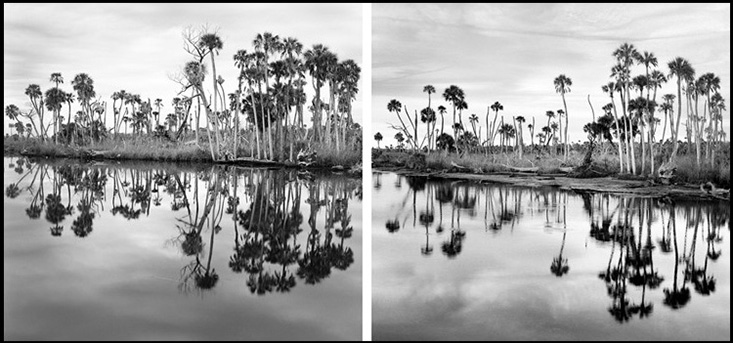ST. PETERSBURG, FL – A study led by Matt McCarthy, a postdoctoral scholar at the USF College of Marine Science, shares “pictures that tell a thousand words” for concern about the health of forests along Florida’s Gulf Coast. Scientists have predicted this area could lose upwards of 50% of its coastal forests by 2100—and the current study underscores how these changes are already visible today. Get the whole story below, in five powerful images.
Highlighted in a recent special issue of the journal Remote Sensing, the work leverages the power of professional photography and satellite imagery to show the rapid decline of coastal forests along the Big Bend area of Florida’s northern Gulf coast—the largest stretch of undeveloped coastal land in the continental United States. The decline accelerated in the last decade, with no apparent regeneration or resilience, in response to a combination of chronic stress from sea-level rise and acute cold snap events, the scientists say.
“We really show people how fast sea-level rise and extreme weather are impacting our coast already,” said McCarthy. “This area is another canary in the coalmine for the myriad ways in which climate change affects the health of coastal habitats.”
The team expects further decline from accelerating sea-level rise and an increase in extreme weather events like Hurricane Michael, which struck the Panhandle in 2018 with little warning.
Download Rapid Coastal Forest Decline in Florida’s Big Bend Article (.pdf)
The story, in 5 slides:
